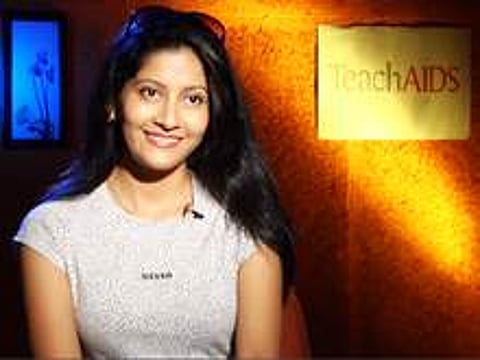

Even now, when actor Anu Choudhury attends auditions in Mumbai, she is asked if she really is from the Odia film industry — an industry that she has been a part of since childhood and is proud of, owing to its culture and rich legacy. The Bhubaneshwar-born actor does also carry a legacy of her own. Her father, Rabi Choudhury rose to fame from being a famous makeup artist to one of the finest editors in the industry — she has never accepted any help from him, except for his wise words. "Before my very first project, he advised me to never climb on someone else’s back to rise up," she says, nostalgically.
And after acting in more than 50 movies in diverse mediums such as Bengali, Telugu and Hindi, she remains humble enough to feel that she is still not doing her best. Her humbleness extends to the point of sometimes calling the director to ask if her take was okay, to which they obviously state that she is overthinking it. "I too would love to direct one day, though," she adds quickly.
Now, one would think that someone, who started in the industry very young, as a child actor and a dubbing artist, would not be prone to such behaviour. But her roots, which she feels grateful for even today, keep her humble and yearning for more work, which is why she doesn't restrict herself to just one language and cares deeply about every character she portrays. "Whatever the role is, people should be able to relate to the character," she says, adding that she seeks to play strong, centralised characters.
The actor was also recently at the Odisha Literary Festival, organised by The New Indian Express, as a panelist. "Fests provide a platform for intellectual discussions, so I get to learn a lot from the audience through the interactions I have, whether they are in the form of questions or comments," she says, cheerfully. While at the festival, Choudhury was speaking on the topic 'Odia Cinema: Glorious Past but Future Uncertain?' where she emphasised that the stakeholders of the industry need to wake up to this possibility.
Reiterating one of the points made during the discussion on copying content, which she fully agrees to, she also adds that, in reality, it is not as easy as it looks. But being a perpetual advocate of regional cinema, Choudhury believes that though she doesn't differentiate, the unique regional flavour is distinct and that makes regional cinema stand out. After all, cinema, be it the regional kind or otherwise, "is a medium that learns from the society and sends a message back to it," she concludes.
